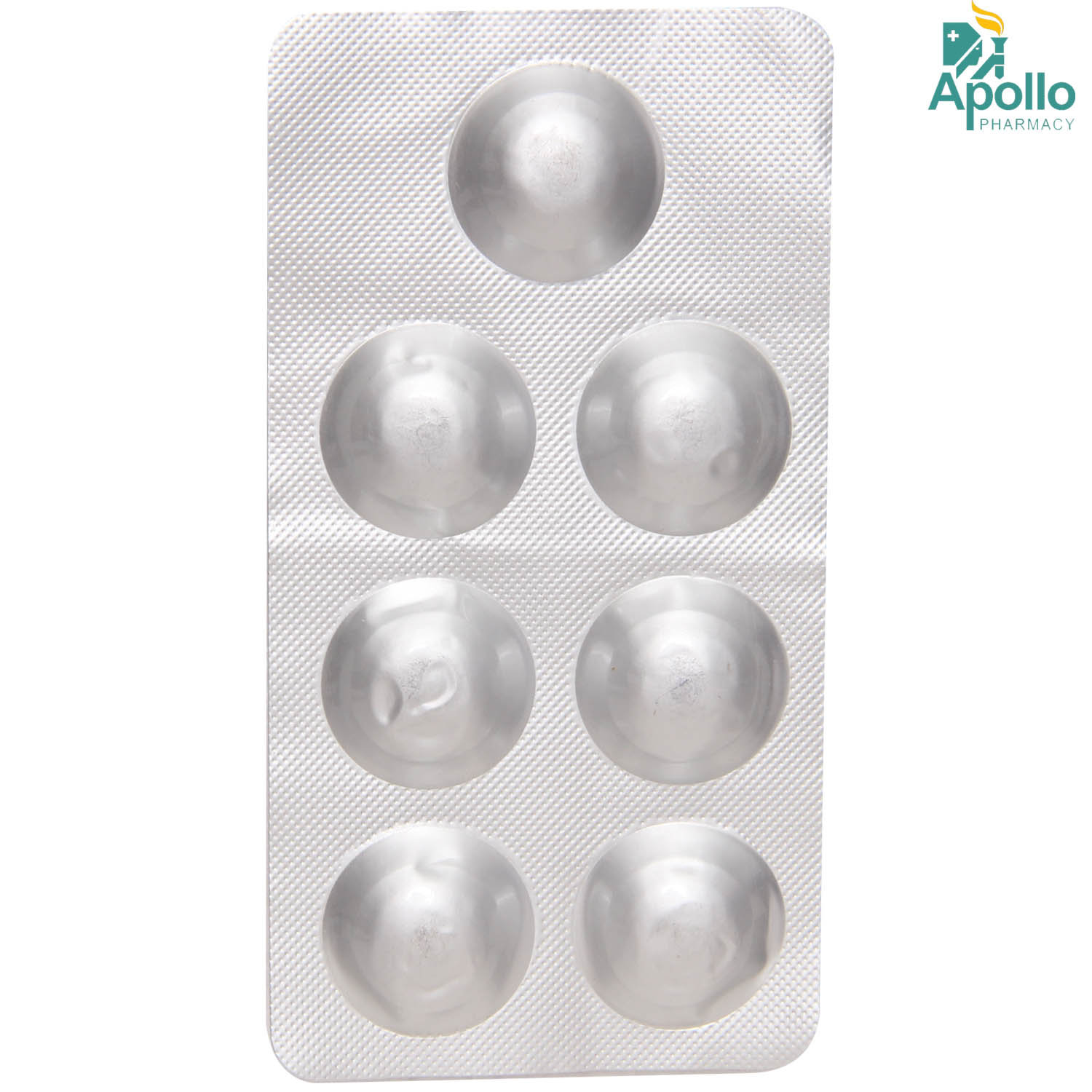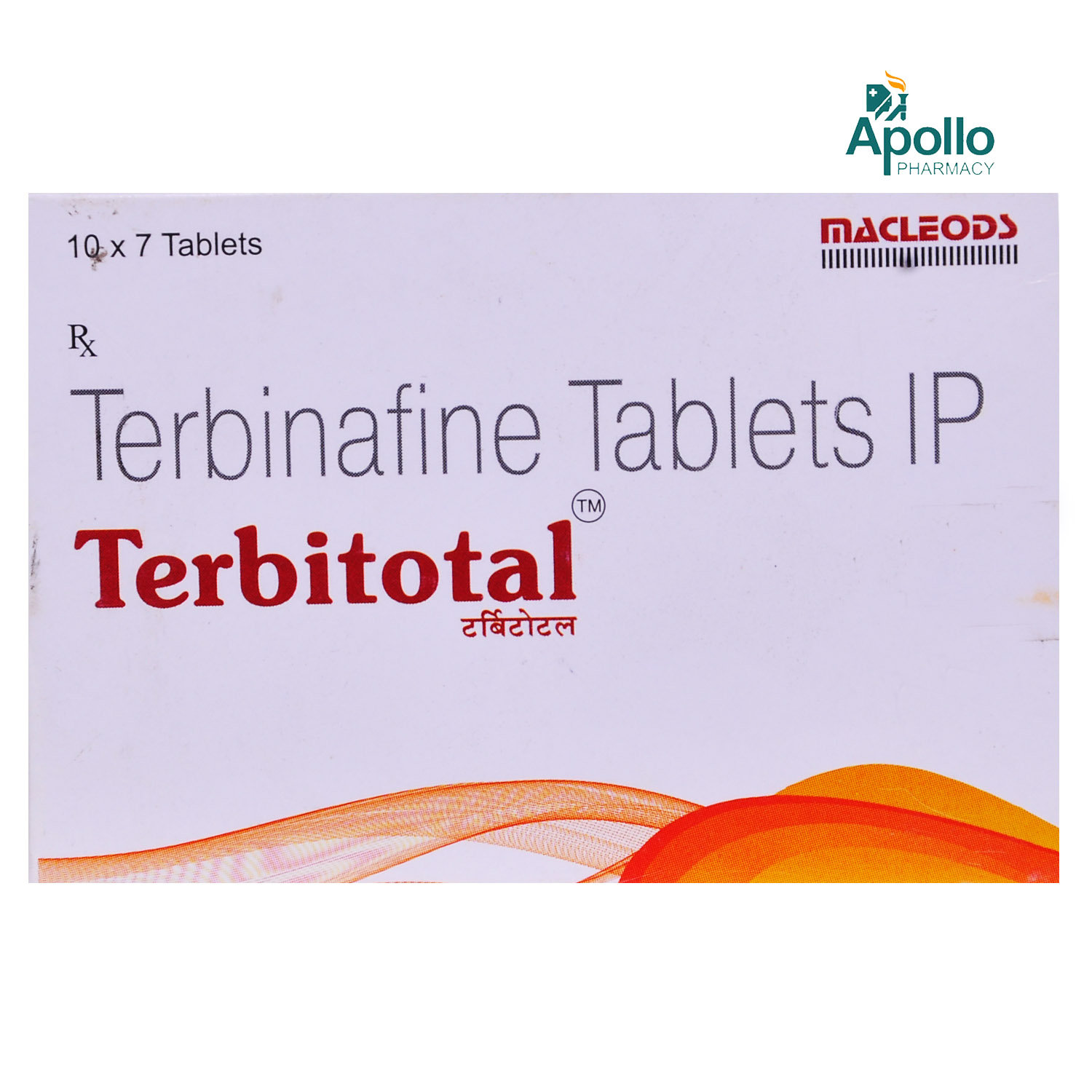Terbinafine
About Terbinafine
Terbinafine belongs to a class of drugs called antifungals. Tablets are used to treat fungal infections of toenails and fingernails. Oral granules are used to treat tinea capitis (scalp ringworm). Fungal nail infections (onychomycosis) are common infections of toenails or fingernails that causes the nail to become thick, discoloured, or more likely to break. Tinea capitis is a fungal infection of the scalp that is contagious and causes bald, itchy, and scaly patches of the ring shape.
Terbinafine contains Terbinafine, an antifungal that works by damaging the fungal cell membranes that are essential for their survival as they prevent the entry of unwanted substances into the cells and stop the leakage of cell contents. Thereby, kills fungi and clears the fungal infection.
Take Terbinafine as prescribed. Your doctor will advise you on how often you need to take Terbinafine based on your medical condition. Some people may experience diarrhoea, stomach pain, headache, and change in taste or loss of taste. Most of these side effects of Terbinafine do not require medical attention and gradually resolve over time. However, if the side effects persist or worsen, please consult your doctor.
If you are allergic to Terbinafine, avoid taking Terbinafine. If you are pregnant or a nursing mother, it is advised to consult a doctor before using Terbinafine. Avoid or limit sun exposure while using Terbinafine as it may make skin more sensitive to sunlight. Wear protective clothing and use sunscreen while going out to protect your skin from sunburn. If you have depressive symptoms such as feeling worthless or sad, loss of interest or energy in daily activities, mood changes, restlessness, or change in sleep pattern, inform your doctor immediately.
Uses of Terbinafine
Medicinal Benefits
Terbinafine is an antifungal. Tablets are used to treat fungal infections of toenails and fingernails. Oral granules are used to treat tinea capitis (scalp ringworm). Terbinafine destroys fungal cell membranes that are essential for their survival as they prevent the entry of unwanted substances into the cells and stop the leakage of cell contents. Thereby, kills fungi and clears infection.
Directions for Use
Storage
Side Effects of Terbinafine
Tablets:
- Diarrhoea
- Indigestion
- Stomach pain
- Headache
- Taste disturbance
- Nausea
- Flatulence (gas)
Oral granules:
- Fever
- Vomiting
- Headache
- Diarrhoea
- Cough
- Nasal congestion
Drug Warnings
If you are allergic to terbinafine, avoid taking Terbinafine. If you are pregnant or a nursing mother, it is advised to consult a doctor before using Terbinafine. Avoid or limit sun exposure while using Terbinafine as it may make skin more sensitive to sunlight. Wear protective clothing and use sunscreen while going out to protect your skin from sunburn. If you have lupus (an autoimmune disease), weakened immune system, kidney or liver problems, inform your doctor before taking Terbinafine. If you have depressive symptoms such as feeling worthless or sad, loss of interest or energy in daily activities, mood changes, restlessness, or change in sleep pattern, inform your doctor immediately.
Drug Interactions
Drug-Drug Interaction: Terbinafine may interact with drugs used to treat stomach ulcers (cimetidine), antibiotics (rifampicin), antifungal (fluconazole), medicine used to treat high blood pressure (metoprolol), antidepressants (duloxetine, desipramine), opioid pain killers (codeine, tramadol), blood thinners (warfarin), heart-related medicines (amiodarone) and immunosuppressant (ciclosporin).
Drug-Food Interaction: Terbinafine may interact with caffeine. Therefore, avoid foods containing chocolate and caffeine such as cocoa beans, tea, coffee, cola, and energy drinks as it may increase the adverse effects of caffeine.
Drug-Disease Interaction: If you have lupus (an autoimmune disease), weakened immune system, kidney or liver problems, inform your doctor before taking Terbinafine.
Drug-Drug Interactions Checker List:
Safety Advice

Alcohol
cautionInteraction of alcohol with Terbinafine is unknown. Please consult a doctor before consuming alcohol with Terbinafine.

Pregnancy
cautionTerbinafine is Category B pregnancy drug and is given to a pregnant women only if the doctor thinks benefits outweigh risks.

Breast Feeding
unsafeTerbinafine may be excreted in human milk and harm the baby. Therefore, it is not advised for breastfeeding mothers.

Driving
cautionTerbinafine may cause dizziness. Therefore, drive only if you alert after taking Terbinafine.

Liver
cautionTake Terbinafine with caution, especially if you have a history of Liver diseases/conditions. The dose may be adjusted by your doctor as required.

Kidney
cautionTake Terbinafine with caution, especially if you have a history of Kidney diseases/conditions. The dose may be adjusted by your doctor as required.

Children
cautionTablets are not recommended for children below 12 years as the safety and effectiveness were not established. Oral granules are recommended for children aged 4 years and above if prescribed by the doctor.
Habit Forming
Diet & Lifestyle Advise
Fungal nail infections (onychomycosis):
- Keep your feet and hands clean and dry.
- Cut your toenails and fingernails short and keep them clean.
- Avoid sharing nail clippers with others.
- In wet places such as changing rooms and gym showers, wear footwear to prevent fungal infections.
- Chose a clean and licensed salon and make sure that all the instruments in the salon are sterilized after each use.
- Avoid sun exposure while taking Terbinafine as it may make skin more sensitive to sunlight. Wear protective clothing and use sunscreen while going out to protect your skin from sunburn.
Tinea capitis (scalp ringworm):
- Shampoo your child's scalp regularly, especially after a haircut.
- Use scalp conditioning products such as pomades with selenium and coconut oil as they might help to prevent scalp ringworm.
- Make sure your children wash their hands regularly even after playing with pets and keep their skin clean and dry.
- Avoid infected animals.
- Keep shared areas clean especially childcare centres and schools.
- Teach children to avoid sharing personal items such as towels, clothing, hairbrushes, etc.
Special Advise
Your doctor may advise blood tests before you take Terbinafine to check for liver problems.
Patients Concern
Disease/Condition Glossary
Fungal nail infections (onychomycosis): They are common infections of toenails or fingernails caused by different types of fungi living in the environment. These germs enter the nail through small cracks in the nail or surrounding skin and cause infection. The symptoms include thick, or discoloured (brown, yellow or white) nails and nails more likely to break. Unless it becomes severe, it is not painful usually. Fungal infections are more common in toenails than fingernails.
Tinea capitis (scalp ringworm): It is a fungal infection of the scalp that involves both hair and skin. It is contagious and the symptoms include dry, itchy, scaly patches, hair loss and redness. The name ringworm is due to its circular shape. It mostly occurs in children between 3 to 7 years of age.
FAQs
Terbinafine works by damaging the fungal cell membranes that are essential for their survival as they prevent the entry of unwanted substances into the cells and stop the leakage of cell contents. Thereby, kills fungi and clears the fungal infection.
You are recommended to avoid foods containing chocolate and caffeine such as cocoa beans, tea, coffee, cola and energy drinks while taking Terbinafine as it may increase the adverse effects of caffeine.
Terbinafine may increase the skin sensitivity to sunlight. Therefore, avoid or limit exposure to sunlight and sunlamps. You are advised to use sunscreen and wear protective clothing while going out to prevent sunburn. However, if you notice any unusual skin sensitivity while using Terbinafine such as a rash, please consult a doctor.
Terbinafine may cause changes in taste or loss of taste as a side effect. It may usually improve within several weeks after stopping Terbinafine, but may become permanent or last for a long time. However, if you have a poor appetite, unintended weight loss, loss of taste or changes in taste or change in mood or depressive symptoms, inform your doctor.
You are not recommended to stop using Terbinafine without consulting your doctor as it may cause recurring infections. Therefore, take Terbinafine for as long as your doctor has prescribed it, and if you experience any difficulty while taking Terbinafine, please consult your doctor.








